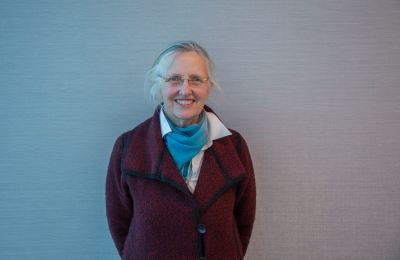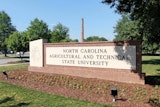So far, 2020 has shone a spotlight on how our society is failing Black, Indigenous and people of color (BIPOC), from the disproportionate impact of COVID-19 to continued police brutality. Protests across the U.S. — and around the world — have sparked important conversations to address systemic racism and remove barriers.
We have seen recent discussions, like #BlackInIvory and #BlackInTheIvory, speak truth to power about the systemic discrimination and racism that exists in academia and science. Within the sciences, geoscience is among the least diverse fields in the U.S. Only 15% of geoscience doctorates are awarded to people of color, and women of color are particularly underrepresented. Over 43 years, from 1973 to 2016, only 20 Native American and 69 Black women received doctorates in the geosciences.
 Dr. Robin E. Bell
Dr. Robin E. BellWhile doctoral degrees earned is one way of monitoring progress, we must turn these and other conversations into meaningful action. Geoscience is essential for the future of our species on this planet. We need everyone around the table making discoveries and developing solutions.
As we develop rules and processes to safely navigate COVID-19 across organizations and academia, we have the opportunity to create new rules and develop a system that is fair and just for everyone. We must take advantage of this time to change the rules and processes by engaging in difficult conversations and creating genuine change.
We must end the systems that allowed the deeply privileged to get ahead at the expense of others.
As a first step, organizations, institutions, departments and individuals should sign on to No Time for Silence, the Geoscientists of Color statement. This powerful call to action outlines what we each can do to enact change. The American Geophysical Union (AGU) took this call to action, along with in-depth conversations within our community, to identify eight immediate action areas to move forward. Combating systemic racism in the geosciences involves addressing how we invest our money; how we select our leaders; how we share our science; what work we do, honor and reward; and how we foster the next generation of scientists and leaders.
But more needs to be done. We must encourage students of color to pursue geoscience and mentor them throughout their education and careers; hire more diverse faculty and staff; be better and more present allies when microaggressions occur on campus or in the workplace; and eliminate the barriers to entry, such as standardized tests like the Graduate Record Examinations and fieldwork requirements.
 Dr. Lisa White
Dr. Lisa WhiteThe National Science Foundation’s ADVANCE program was established after women at the Massachusetts Institute of Technology documented the disparities they experienced. In response, this program has seen a remarkable impact on women’s opportunities and representation in STEM.
As part of the ADVANCE program, Columbia University’s Lamont-Doherty Earth Observatory has focused on training, hiring, mentoring and coaching in the earth science fields. At the beginning of the program, women’s representation in teaching earth science at Columbia was in the single digits. At the end of the ADVANCE program, women’s representation increased into the double digits and is now 40%. Today, Maureen Raymo is the first woman climate scientist to lead the observatory.
Science also needs to be reframed. It is not an esoteric subject that is only studied by people who resemble Indiana Jones, Sheldon Cooper or Bruce Banner. Representation matters. We certainly applaud the gains made by women in our community and celebrate the pioneering spirit and accomplishments of Marie Tharp, Sylvia Earle and Mae Jemison. But we must also recruit and retain BIPOC geoscientists.
Diversity in science benefits us all because everyone brings a unique voice, experience and perspective that can help solve the challenges our society faces. In Washington, D.C., neighborhoods with a high percentage of Black and Hispanic populations, low-income residents, older residents and people with disabilities have been more vulnerable to extreme heat. To improve the lives of residents, a community-based project developed recommendations to address — and better prepare for — extreme heat occurrences.
At the end of the day, when protesters are demanding change to save lives, focusing on increasing diversity and inclusion in science may seem like a small piece to this puzzle of addressing systemic racism. But it is the piece that we can improve, and it is a piece that we must improve. Our planet, our species and our science demand and require it. We must challenge the status quo and create change.
Dr. Robin E. Bell is the Palisades Geophysical Institute/Lamont Research Professor at the Lamont-Doherty Earth Observatory and president of the American Geophysical Union (AGU). Dr. Lisa White is the Director of Education and Outreach with the University of California Berkeley Museum of Paleontology and the chair of AGU’s Diversity and Inclusion Advisory Committee.















